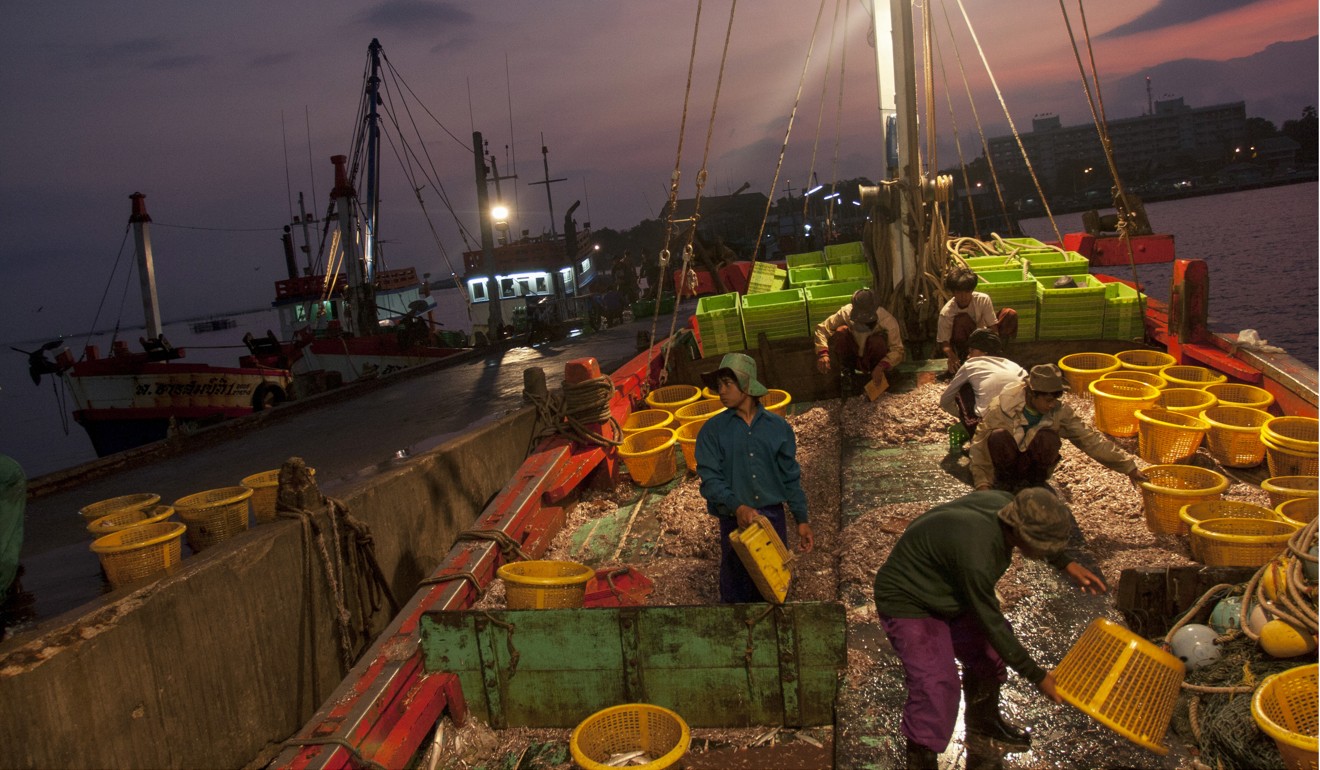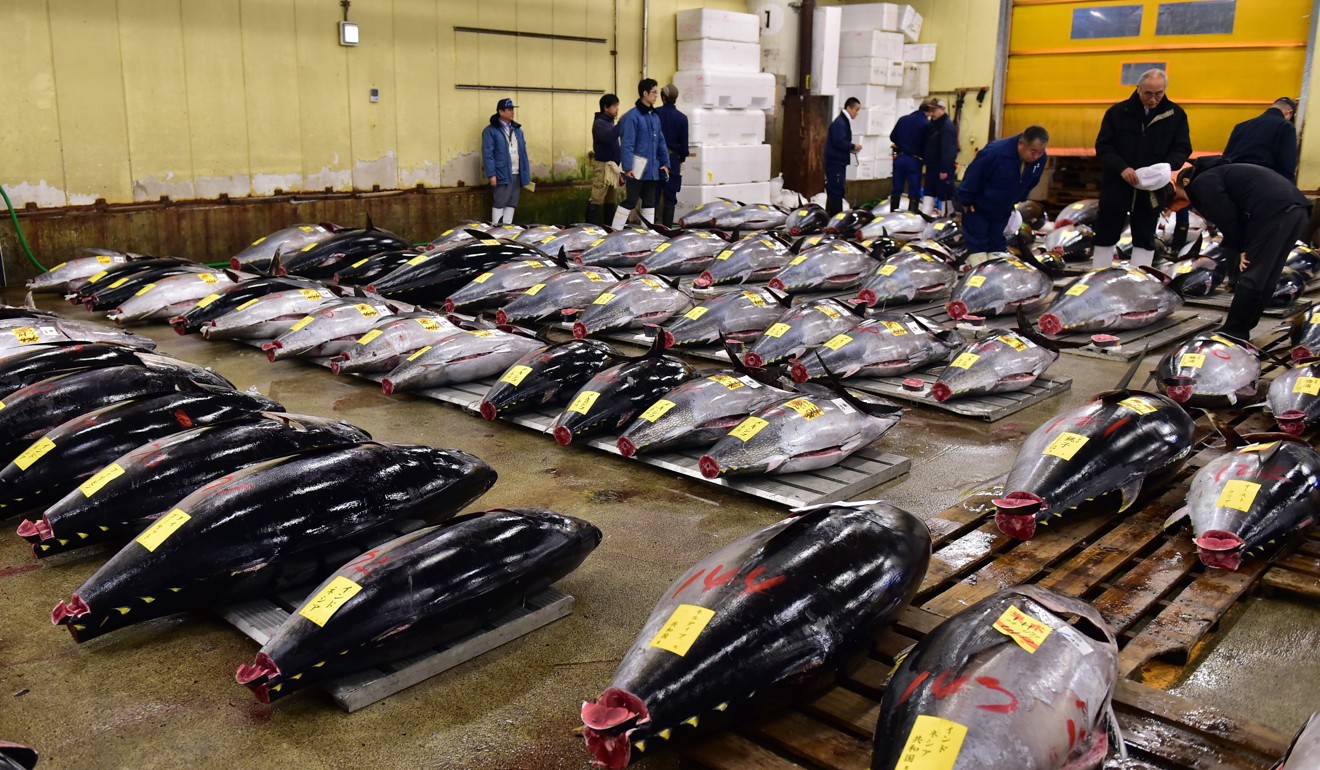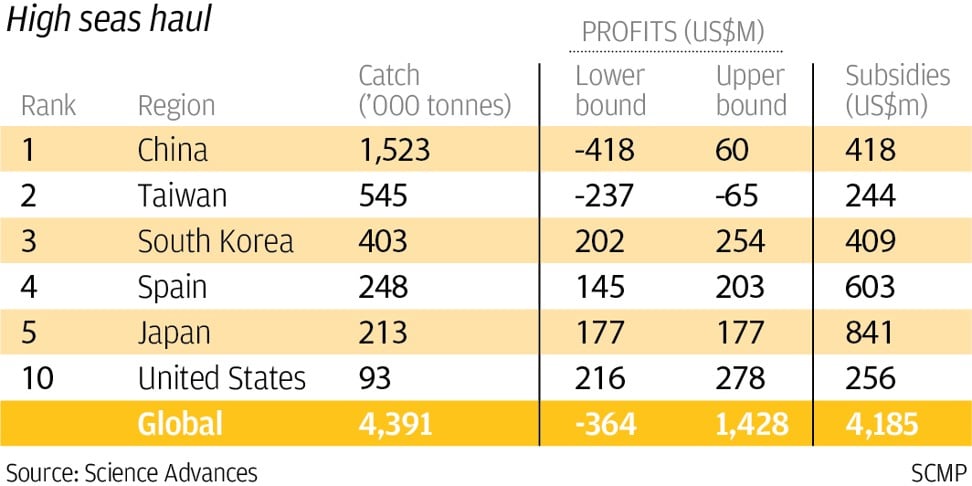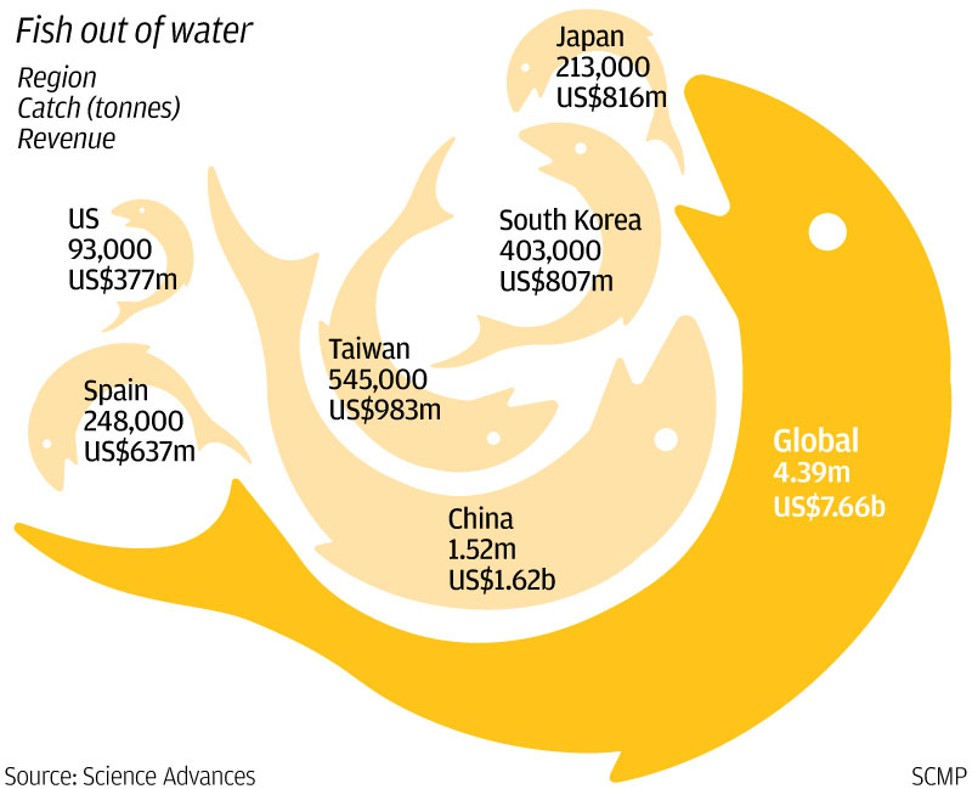
China urged to cut huge subsidies for unprofitable trawler fleets to curb overfishing and save oceans
More than half of the global industry would be unprofitable without big infusions of government aid, according to a joint international study
Top fishing countries such as China should cut government subsidies for industrial fleets because the money is helping to keep many sinking and destructive high seas operations afloat, a global report has found.
Researchers from the National Geographic Society in Washington, the University of California, the University of British Columbia and the University of Western Australia found that as much as 54 per cent of the high seas fishing industry would be unprofitable at its existing scale without big government subsidies.
The research, published on Thursday in the journal Science Advances, found that the global cost of fishing in the high seas ranged between US$6.2 billion and US$8 billion in 2014. Financial results ranged from a loss of US$364 million to profit of US$1.4 billion in that year.
“I think the top fishing countries, including China, should cut the subsidies to their industrial fleets that support overfishing and destruction of the marine ecosystem, for example by deep bottom trawling,” said Enric Sala, a National Geographic explorer-in-residence who led a study behind the report.
Bottom trawling is the practice of dragging long nets along the ocean floor and destroying the marine life along the way.
Chinese fish farm tests deep-sea waters with ‘world’s biggest’ salmon cage
Japan gave the biggest subsidies to its high sea fleets in 2014, accounting for 20 per cent of global subsidies followed by Spain on 14 per cent. China ranked third, with subsidies of US$418 million, or 10 per cent, earmarked mainly for diesel fuel for its “distant water fishing” fleets.
As fisheries off China’s coasts have declined over the years, Chinese fishermen have been encouraged to head out into the high seas or exclusive economic zones, 200 miles off the shores of coastal countries.

China had caught a world-leading 1.52 million tonnes of seafood in the high seas, according to the report.
China’s most profitable high seas operations were in the Northwest Pacific, the report said.
Most of its other fisheries appeared to be loss-makers.
Is Hong Kong’s HK$2 billion love of the dried seafood fish maw worth endangering a species?
The most unprofitable Chinese fishing activity was bottom trawling in the Southwest Atlantic, which had an average net loss of US$98 million, even after subsidies were taken into account.
Chinese fishermen have been involved in clashes with fleets and coastguards of other countries while operating far afield. In March 2016, Argentina’s coastguard sank a Chinese trawler fishing within its territorial waters.
“Whether subsidies enable profitability or not, the magnitude of subsidies, and the fact that many of these subsidies lower the marginal cost of fishing, suggests that high seas fishing activity could be dramatically altered in their absence,” the study concluded.
But a professor from Guangdong Ocean University’s fisheries college who declined to be named said China was within its rights to use far ocean fishing to develop its marine economy and was not alone in subsidising its fleets.
China pledges to cut size of its massive fishing fleet due to serious threat to nation’s fish stocks
“China is trying to be a responsible marine fishing power by halting subsidies to vessels that do not abide by international laws or agreements,” he said. “These marine resources would be a waste without [the] fishing industry.”
Beijing has signalled its intention to take steps to protect the environment, targeting at least a 20 per cent drop in ocean catches by 2020 and moving to cap the number of ocean fishing vessels to 3,000 by the same year.

In December, China, together with eight other countries and the European Union, agreed to hold off fishing in the Arctic high seas for at least 16 years to protect the environment.
Sala, the study’s lead author, said the move was a good start but there was still more to do.
Eating fish sustainably: how Hong Kong is decimating fish stocks with its appetite for seafood, and what you can do to stem pillage
“This is great for the future ocean area that will arise once the summer sea ice is gone because of climate change,” he said. “But it does not solve the current problems of overfishing throughout the ocean.
“The high seas offer a unique opportunity for another international cooperation to protect up to two-thirds of the ocean, which would help replenish countries’ waters.”



